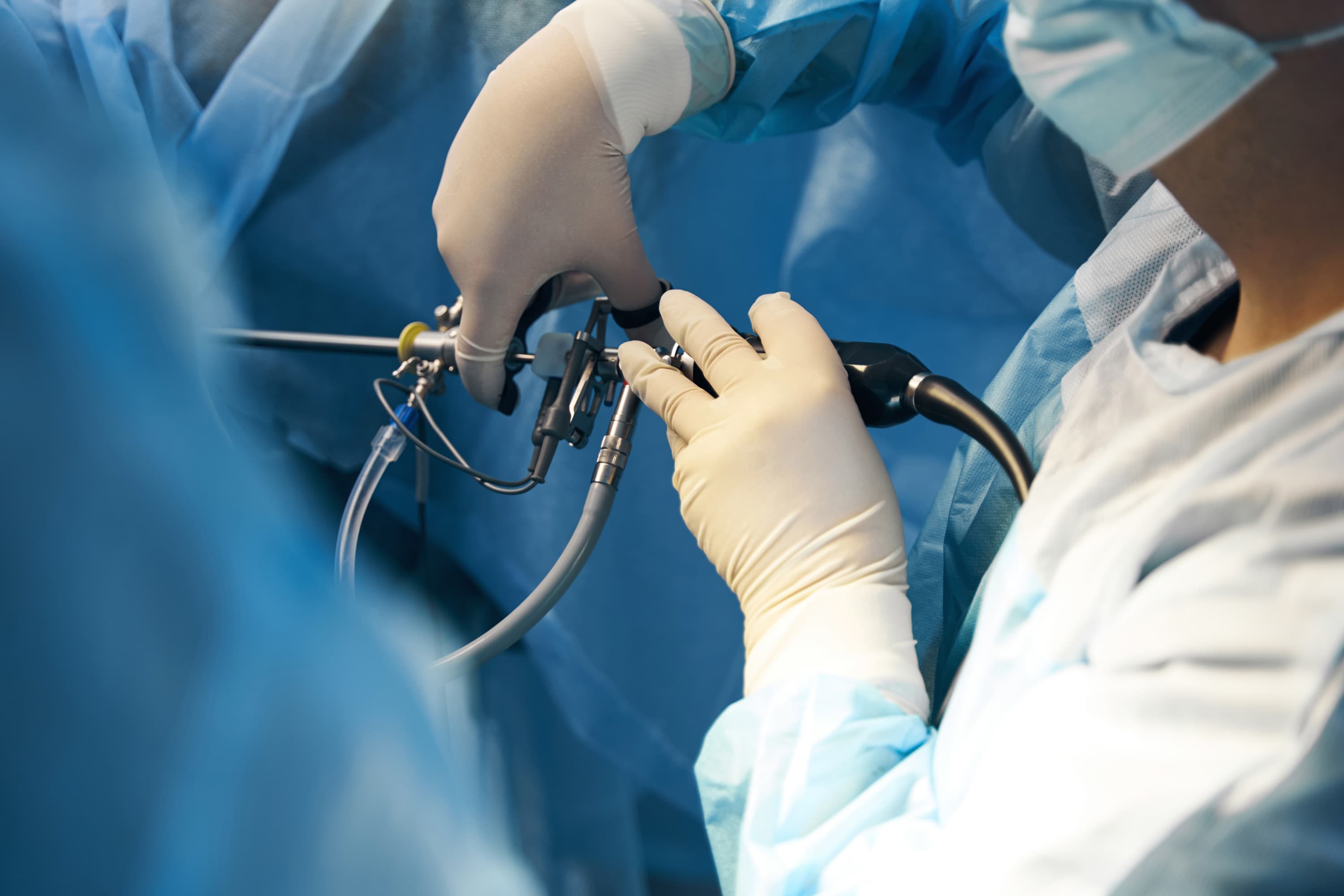Bariatric Surgery
Advanced Bariatric Surgery in Chicago


Bariatric Surgeons with a High Level of Expertise
Bariatric or weight loss surgery is the best and most effective treatment for the disease of obesity. The Chicago Institute of Advanced Surgery’s (CIAS) bariatric treatment center runs a comprehensive, multispecialty program for our patients. With two fellowship-trained surgeons, multiple physician assistants and dietitians involved, you’re sure to get the individualized care you need.
Our program is fully accredited as a Comprehensive Center of Excellence by the American College of Surgeons (ACS), the American Society of Metabolic and Bariatric Surgery (ASMBS), Blue Cross Blue Shield and UnitedHealthcare. We accept most insurance plans.
The CIAS offers all treatment modalities for our patients including minimally invasive surgery, endoscopy, pharmacotherapy and obesity medicine. With our expertise, we have a specialized track for revisional surgery, treating patients with recurrent obesity and weight regain, and those who may have adverse outcomes from prior surgeries. Our physicians perform 400 – 500 surgeries annually.
Benefits of Bariatric Surgery in Chicago
Permanent Weight Loss
Surgery is an opportunity to improve serious obesity-related health problems and significantly improve quality of life.
Better Health
These issues are often improved or resolved after weight loss surgery: type 2 diabetes, heart disease, stroke, high blood pressure, high cholesterol, cancer, joint issues, sexual and fertility problems, sleep disorders, asthma, incontinence and depression.
Improved Appearance
After surgery, patients say they look better, fit more easily into clothes and feel better about the way they look.
Quality of Life
Patients are able to do things that others take for granted such as tying their own shoes, playing with their children, fitting into an airplane seat, and having sex and getting pregnant.
Types of Bariatric Surgery Performed at the CIAS
Laparoscopic Gastric Sleeve
Laparoscopic Gastric Sleeve is one of several advanced and minimally invasive bariatric surgeries offered at the CIAS. Our own Dr. Lutfi was the first surgeon in Illinois to perform a gastric sleeve. Among the most popular weight loss surgeries, laparoscopic sleeve gastrectomy is performed through only four or five small incisions made with a laparoscope, a telescope-like tool that allows the surgeon to see into the patient’s abdomen without requiring large incisions.
During this surgery, the stomach is lifted away from the small intestine. The surgeon uses the laparoscope to remove a portion of the upper curved area of the stomach called the fundus, where the hormone ghrelin, which causes hunger, is produced. This decreases the size of the stomach and reshapes it into a more tubular shape resembling a sleeve.
This surgery can result in a weight loss as high as 60% of excess body weight; some lose as much as 80% or more. The exact amount depends on the patient’s commitment to following the post-op regimen.
Laparoscopic Gastric Bypass
One of the state-of-the art bariatric surgeries offered at the CIAS, laparoscopic gastric bypass is a minimally invasive procedure. The surgeon uses a laparoscope tool to view and access the stomach, leaving only four or five small scars. Sometimes called Roux-en-Y gastric bypass (RYGB), this procedure involves dividing the stomach into two parts: the majority of the stomach and a small pouch that the surgeon creates. Post-surgery, this pouch functions as the patient’s stomach and holds about one ounce or 30 milliliters.
The patient’s small bowel is also divided, and one end is connected to the new stomach pouch. The other end is connected to the other half of the small bowel below the stomach. Doing this allows the major part of the stomach to be “bypassed” during the digestive process. All food is now processed in the small pouch, and this restricts food intake because the patient feels full faster than before the surgery. Some of the food moves straight through the intestines, reducing the number of calories absorbed.
After undergoing this procedure, patients usually lose a significant amount of weight quickly. Over a period of two years, most patients lose at least 60% of their excess weight, and some lose as much as 80%.
Laparoscopic Duodenal Switch
A combination of restrictive and malabsorptive weight loss surgeries, the bariatric duodenal switch surgery is also known as a biliopancreatic diversion (BPD) with duodenal switch (DS). This surgery decreases the amount of food the stomach can accommodate, shortens the length of the intestine to prevent calorie absorption and reduces overall calorie intake.
We begin by creating a small, tubular pouch by removing part of the stomach, like we do during a sleeve gastrectomy. Then, we bypass much of the small intestine, which is part of a traditional gastric bypass. Creating a moderately sized stomach pouch as well as bypassing a large part of the small intestine allows the patient to lose weight without a major change in eating habits vs. that required for other types of bariatric surgeries. The stomach can hold five to six ounces of food after this procedure, while other procedures generally allow only a half to one full ounce.
Laparoscopic duodenal switch decreases fat absorption, makes the patient feel fuller faster, reduces hunger by affecting hormone levels and is more effective against diabetes than other procedures. This surgery allows patients to lose approximately 70% of excess weight in five years, while they eventually enjoy near-normal amounts of food.
Revisional Bariatric Surgery
Revisional bariatric surgery refers to a second weight loss surgery. A revision surgery is performed when the first bariatric surgery does not achieve the desired weight loss because the pouch was too big or the connection between the pouch and small intestine dilates, or the patient regains weight even years after a successful surgery, even with diet and exercise.
Options include: (1) lap band to gastric sleeve, (2) lap band to gastric bypass, (3) gastric sleeve to gastric bypass, and (4) gastric sleeve to duodenal switch. The surgeon determines which technique is best on the basis of the patient’s history and physical condition.
If you are dissatisfied with the results of your first bariatric surgery or are gaining weight post-surgery, you may be a good candidate for revisional surgery. However, keep in mind that if you do not follow our dietary protocol after your second surgery, it will not be successful. Surgery is only the beginning of your weight loss journey.
Choose the Chicago Institute of Advanced Surgery
Our weight loss surgery program combines the best aspects of a bariatric weight loss clinic with a first-rate surgical center. The bariatric wellness center at the Chicago Institute of Advanced Surgery offers comprehensive surgical and non-surgical weight loss management programs. Whether you want surgery or medical treatment for obesity, the CIAS is dedicated to helping all people suffering from obesity achieve weight loss, live health and enjoy a better quality of life.